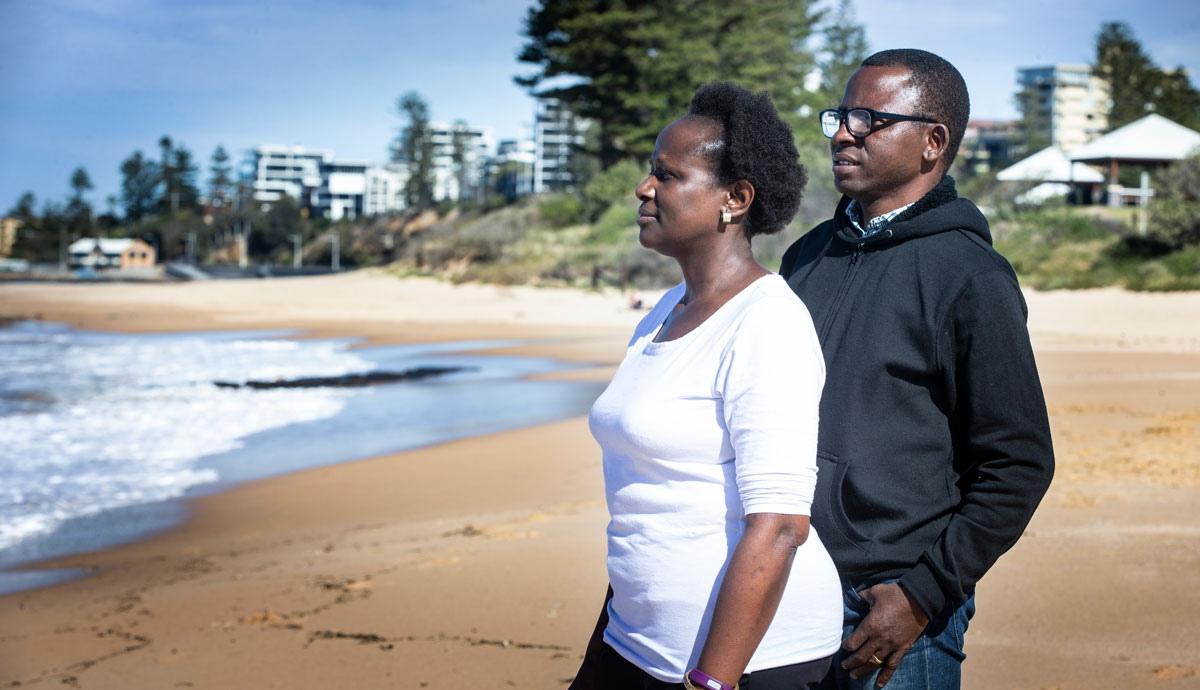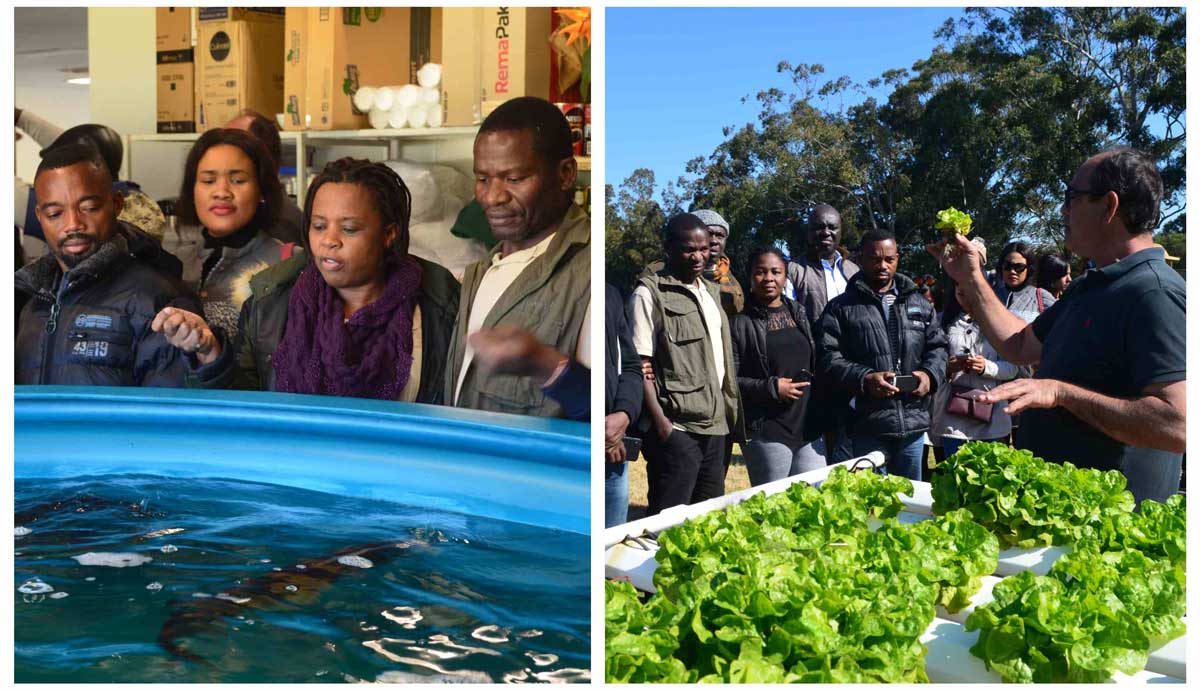August 21, 2018
Ocean is the classroom as Australia Awards participants learn about sustainable fisheries
Short course aims to strengthen relationship between Africa and Australia
Imagine a course that takes you from the white sands of Jervis Bay, to the sparkling waters of the Great Barrier Reef, to the palm-fringed islands of Mauritius.
For a group of 30 Australia Awards short course participants from Africa, these spectacular sites are their classroom for two months, as they learn from some of the world’s leading experts in oceans and fisheries governance.
It is part of an effort to strengthen ties between Australia and Africa, a collaboration between the University of Wollongong’s (UOW) Australian National Centre for Ocean Resources and Security (ANCORS) and the University of Mauritius, under the Department of Foreign Affairs and Trade’s Australia Awards Africa program.
Australia Awards are prestigious international scholarships, fellowships and short courses offering the next generation of global leaders an opportunity to undertake study, research and professional development in Australia and for high-achieving Australians to do the same overseas.
The short course participants, who are from government ministries, NGOs, and the private sector, are taking part in the eight-week course with the aim of improving their knowledge of the issues affecting oceans and fisheries governance, at locations in Australia and Mauritius.
In addition, the course, Ocean Management: Sustainable Fisheries and Governance, will help the participants to build their skills in leadership, negotiation, project management, and public speaking.
There is a strong focus on social inclusion; the course reflects the diversity of the community, with female participants, participants with a disability, or participants who have experienced disadvantage and marginalisation encouraged to take part.
 Beth Wagude and Olusina Ajayi, pictured in Wollongong. Photo: Paul Jones
Beth Wagude and Olusina Ajayi, pictured in Wollongong. Photo: Paul Jones
Beth Wagude, from Kenya where she works with the fishing industry, said being able to study in Australia has made the learning process much more valuable.
“The experience is wonderful. We are literally implanting the theory into practice, and the course is completely relevant to my role back home,” Ms Wagude said.
“Being able to see the way Australia is managing its fisheries on the ground, I’m excited to put that into practice. It’s not every day you get to travel to these amazing places.”
Olusina Ajayi, from Nigeria where he is a lecturer at the Federal College of Animal Health, said he had come away from the course with so many ideas about how the country could manage its fisheries resources and work with the local community to ensure they were involved with the changes from the ground up.
“One of the areas I’m passionate about is gender equality,” Mr Ajayi said. “In Nigeria, there are policies in place for gender equality but more attention is given to men. I want to advocate for that and ensure the policy is implemented.
“I’m also inspired by the cleanliness of Australia’s beaches. We have a big problem with pollution, especially plastic pollution, so I want to work with the community and see how we can help to make our beaches as clean as this.”
Professor Alistair McIlgorm, Capacity Development Leader at ANCORS, said the course was an incredible opportunity for the participants to be immersed in how to address the issues impacting ocean and marine resources.
“This is a chance for participants to get a comprehensive coverage in key legal and governance knowledge required to improve the management fisheries in the small-scale communities to the largest ocean. We also move beyond the classroom and into the field, to experience how businesses are meeting the challenges that our oceans are facing, a sort of getting their feet wet, seeing ocean entrepreneurship” Professor McIlgorm said.
“It provides them with valuable context, professional development, and a chance to learn about the world of fish trade and international developments around their nations in Africa. This knowledge can then provide the building blocks to industry and trade development in their home countries and help the participants to drive change in fisheries management to underpin sustainable fish trade and sector development.
“Not only will this foster greater relationships between Africa and Australia, but it reinforces the concept that the issues that impacting our oceans are not insular. We all need to work together to ensure our use of the oceans is sustainable for generations to come.”

There are 28 participants from 12 countries in coastal Africa, including Ghana, Cameroon, Kenya, Madagascar, South Africa and Zambia.
As part of the course, the participants will visit a number of places, including Jervis Bay Marine Park, the Great Barrier Reef Marine Park in Cairns, Australia Management Authority in Canberra, and oyster and barramundi/hydroponic farms (pictured) on the NSW Mid North Coast.
The final two weeks of the course will be spent in Mauritius, where the topics will focus on issues relevant to fisheries management in Africa. There, they will visit the marine park, tuna cannery, and take part in jointly hosting with the Australian High Commission, Mauritius, a symposium on the Blue Economy, Fish Trade and Leadership at University of Mauritius.
ANCORS, based at UOW’s Innovation Campus, is Australia’s only multidisciplinary centre dedicated to research, education, and training on ocean law, maritime security, and marine resource management.
:format(jpg)/prod01/channel_3/assets/live-migration/www/images/content/groups/public/web/media/documents/mm/uow250624.jpg)